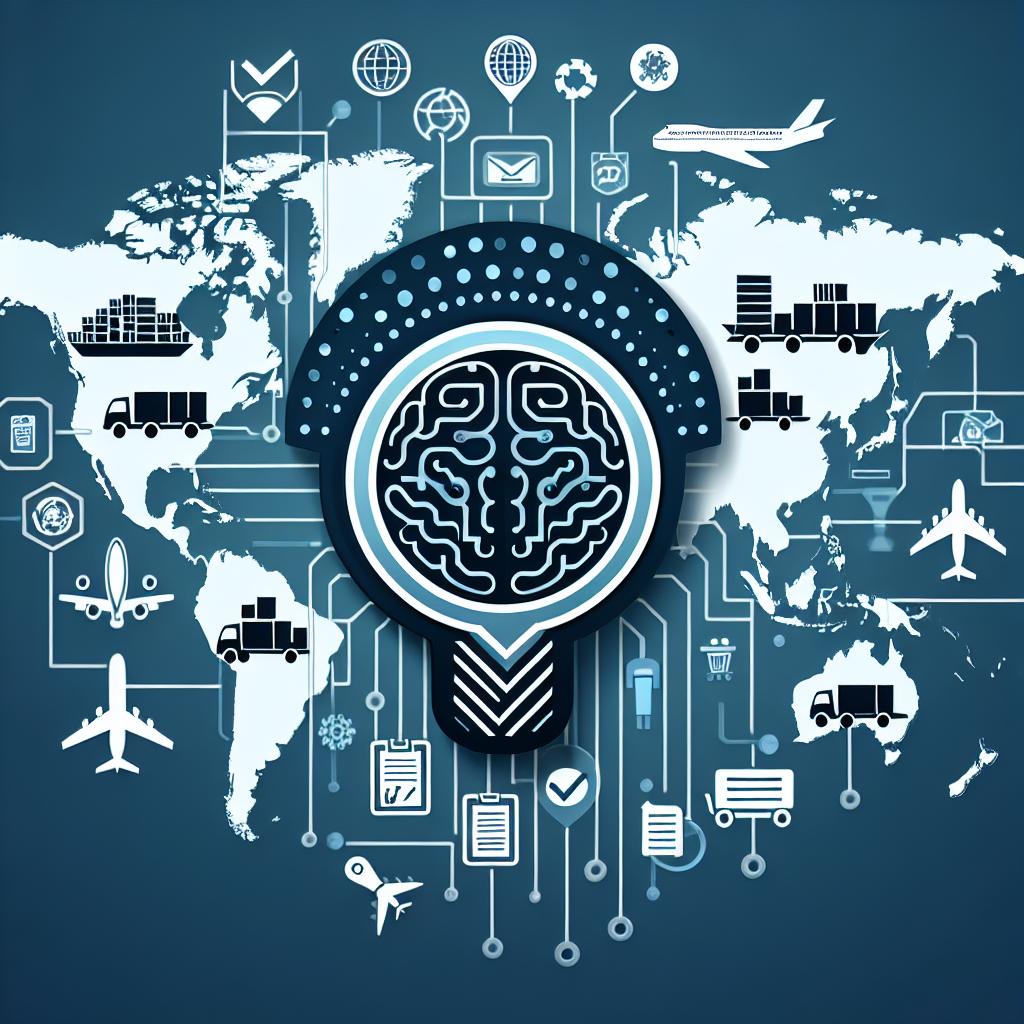In recent years, the use of artificial intelligence (AI) in cross-border trade and customs compliance has been rapidly expanding. AI technology has the potential to revolutionize the way businesses conduct international trade, improving efficiency, accuracy, and compliance with customs regulations. In this article, we will explore some of the key applications of AI in cross-border trade and customs compliance and discuss the benefits it offers to businesses.
One of the main areas where AI is making a significant impact in cross-border trade is in the area of customs compliance. Customs regulations can be complex and constantly evolving, making it challenging for businesses to stay up to date and ensure compliance with all requirements. AI technology can help businesses navigate these complexities by automating the classification and valuation of goods, ensuring that they are accurately declared to customs authorities.
AI algorithms can analyze thousands of data points to determine the correct classification of goods based on factors such as their physical characteristics, composition, and intended use. This not only speeds up the customs clearance process but also reduces the risk of errors or misinterpretation of regulations, which can lead to costly penalties and delays.
Another key application of AI in cross-border trade is in the area of risk management and fraud detection. Customs authorities are constantly on the lookout for potential violations of trade regulations, such as smuggling, counterfeit goods, or under-declared shipments. AI technology can help identify suspicious patterns or anomalies in trade data that may indicate fraudulent activity, allowing customs authorities to intervene and prevent illicit goods from entering the country.
For businesses, AI-powered risk management tools can help identify potential compliance issues before they escalate, allowing them to take corrective action and avoid costly penalties. By analyzing historical trade data and monitoring real-time transactions, AI algorithms can detect deviations from normal patterns and alert businesses to potential risks, enabling them to address issues proactively.
In addition to customs compliance and risk management, AI is also being used to streamline the logistics and supply chain processes involved in cross-border trade. By analyzing shipping routes, transportation costs, and inventory levels, AI algorithms can optimize the movement of goods across international borders, reducing transit times and minimizing costs.
AI-powered predictive analytics can also help businesses forecast demand, anticipate supply chain disruptions, and optimize inventory levels to meet customer demand. This not only improves the efficiency of cross-border trade but also enhances customer satisfaction by ensuring that products are delivered on time and in full.
Overall, the use of AI in cross-border trade and customs compliance offers numerous benefits to businesses, including improved efficiency, accuracy, and compliance with regulations. By automating manual processes, analyzing vast amounts of data, and identifying potential risks, AI technology can help businesses navigate the complexities of international trade with confidence and ease.
FAQs:
Q: How can AI help businesses comply with customs regulations?
A: AI technology can automate the classification and valuation of goods, ensuring that they are accurately declared to customs authorities. By analyzing trade data and identifying potential compliance issues, AI algorithms can help businesses stay up to date with changing regulations and avoid costly penalties.
Q: What are some of the key benefits of using AI in cross-border trade?
A: Some of the key benefits of using AI in cross-border trade include improved efficiency, accuracy, and compliance with regulations. AI technology can help businesses streamline customs clearance processes, detect fraudulent activity, and optimize supply chain operations, enhancing their competitiveness in the global marketplace.
Q: How can businesses implement AI in their cross-border trade operations?
A: Businesses can implement AI in their cross-border trade operations by partnering with technology providers that offer AI-powered solutions for customs compliance, risk management, and logistics optimization. By integrating AI technology into their existing systems and processes, businesses can leverage its capabilities to drive growth and innovation in their international trade activities.

